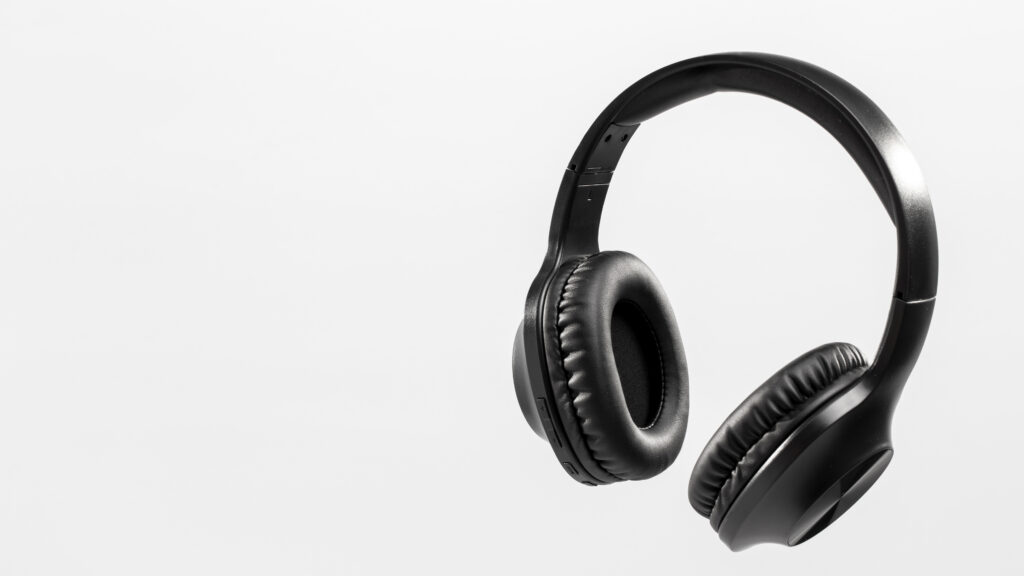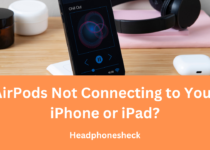Can you go deaf from headphones?
Have you ever cranked up the volume on your favorite tunes, immersing yourself in the world of music through your trusty headphones, and then wondered, “Can you go deaf from headphones?“
It’s a question that echoes in the minds of many music enthusiasts who indulge in prolonged and intense listening experiences.
Let’s dive into auditory health and explore the potential risks lurking behind those stylish ear cups.
Join us on this auditory exploration, where we decipher the nuances of headphone usage, debunk common myths, and empower you with the knowledge to make informed choices.
Can you go deaf from headphones? Let’s navigate the intricacies together and ensure that your audio experiences are pleasurable and mindful of your long-term hearing well-being.
Can you go deaf from headphones?
Yes, it is possible to go deaf from headphones, although it’s not a common occurrence. Prolonged exposure to loud volumes through headphones can lead to irreversible hearing damage.

The delicate structures in the ear can be negatively impacted by high volumes, causing long-term issues such as noise-induced hearing loss (NIHL).
A study published on Medical News Today supports this concern, indicating that headphone use is associated with the risk of hearing loss.
The study underscores the importance of being mindful of volume levels when using headphones and emphasizes the need for regular breaks to protect your hearing health.
It’s crucial to stay informed about the potential risks outlined in studies like these and to implement safe listening practices.
Regular monitoring of your hearing and paying attention to warning signs like tinnitus or muffled sounds are essential steps in preventing potential deafness from headphone use.
Read: Can wearing headphones cause headaches?
What Are Signs of Hearing Problems?
Recognizing signs of hearing problems is vital for early intervention and overall auditory health.
Common indicators include difficulty understanding spoken words, frequent requests for repetition, increased volume levels on electronic devices, avoidance of social situations due to communication challenges, and the presence of persistent noises like ringing or buzzing in the ears, known as tinnitus.
Muffled or distorted sounds, ear pain or discomfort, and difficulty with phone conversations are also red flags.
Hearing issues may manifest as fatigue or stress during prolonged listening, and individuals may find it challenging to hear high-pitched sounds or experience unilateral hearing loss.
Changes in speech patterns, difficulty localizing sounds, impaired balance, and feelings of frustration or irritability in challenging listening situations are additional cues.
If any of these signs are noticed, seeking professional advice for a comprehensive hearing assessment is crucial for timely intervention and improved outcomes.
What’s the Right Way to Use Headphones?
Using headphones responsibly is essential to protect your hearing health and ensure a positive listening experience.
Here are some guidelines on the right way to use headphones:
1. The 60%/60-Minute Rule:
Adhere to the 60%/60-minute rule, which recommends keeping the volume at or below 60% of the maximum and limiting continuous listening to 60 minutes.
This rule helps strike a balance between enjoying your audio content and preventing potential hearing damage due to prolonged exposure.

Implementing this rule encourages periodic breaks, allowing your ears to recover and reducing the risk of long-term harm.
2. Choose Over-Ear Headphones:
Over-ear headphones provide better external noise isolation, reducing the need to turn up the volume in noisy environments.
3. Avoid High-Volume Environments:
In noisy surroundings, resist the urge to turn up the volume. Instead, use noise-canceling headphones to block external sounds.
4. Clean Your Headphones:
Regularly clean earbuds and over-ear cushions to prevent the buildup of bacteria, which can lead to ear infections.
5. Be Mindful of Earbuds:
Earbuds can be more damaging than over-ear headphones as they sit closer to the eardrum. Keep the volume lower when using earbuds.
By incorporating these practices into your headphone usage, you can enjoy your favorite music or podcasts while safeguarding your precious hearing health.
Read: Can you wear headphones with an ear infection?
Frequently Asked Questions: Can you go deaf from headphones?
Can you go deaf wearing headphones?
While it’s not common, prolonged exposure to loud volumes through headphones can lead to irreversible hearing damage, increasing the risk of deafness over time.
How can I use headphones without hearing loss?
To prevent hearing loss, maintain moderate volume levels, take breaks every 60 minutes, choose quality over-ear headphones for better isolation, clean your headphones regularly, and adhere to the 60%/60-minute rule.
Can wearing headphones cause blocked ears?
Yes, wearing headphones for extended periods can contribute to earwax buildup, leading to a feeling of blocked ears. Regular cleaning and breaks can help alleviate this issue.
Can you go temporarily deaf?
Temporary deafness can occur after exposure to loud sounds, such as high volumes through headphones.
This is often reversible, but it underscores the importance of responsible headphone use to avoid potential hearing issues.
Conclusion
In conclusion, the question that echoes in the realm of audio enthusiasts – “Can you go deaf from headphones?” – prompts a thoughtful exploration of the delicate balance between immersive sound experiences and hearing health.
Our journey through the intricacies of sound waves and headphone usage has unveiled both the potential risks and the importance of responsible listening.
While the threat of deafness looms in extreme cases, armed with knowledge and moderation, we can enjoy our audio indulgences without compromising our precious sense of hearing.
So, can you go deaf from headphones? The answer lies in understanding the nuances and adopting practices that make the world of sound a joyous and sustainable journey for your ears.



